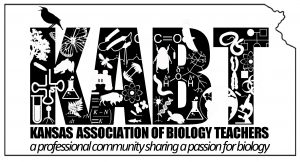JCCC – College Scholars Program Lecture
Understanding the Role of the Dynein/Dynactin Motor in Neurodegenerative Diseases
by Dr. Margaret Kincaid, Associate Professor, Science
6:30 pm reception and 7 pm lecture, Wednesday, February 10, 2010
M.R. and Evelyn Hudson Auditorium at Johnson County Community College
Intracellular trafficking plays an important role in a range of human disease. As a basic scientist, Kincaid is looking at one component of intracellular trafficking – the dynein/dynactin motor complex. Dynein is a motor molecule in cells that converts chemical energy into the mechanical energy of movement. Dynactin is needed to activate dynein activity. Kincaid’s model gives insight into how mutations associated with the motor complex may contribute to neurodegenerative diseases, in particular lateonset diseases associated with motor neurons. A greater understanding of dynactin-dependent dynein movement may lead to potential treatment therapies.
In her evening lecture, Kincaid will present her most recent data that corroborates a working model for how dynactin regulates the function of dynein inside cells in order to transport cargo along “highways” within cells. She will explain the role the motor complex plays in human diseases such as amyotrophic lateral sclerosis (ALS) or Lou Gehrig’s disease, Alzheimer’s disease, Parkinson’s disease and Huntington’s disease. In the daytime lecture, Kincaid will explain some laboratory techniques she is using to determine how dynactin affects dynein-dependent transport inside cells — techniques such as an in vitro bead-based motility assay and fluorescent tagged molecules within mammalian cells. She will look at how the research is used to determine the effects of dynactin mutants, including mutations linked to ALS.
Kincaid has a bachelor’s degree in biology, a master’s degree in cell and molecular biology, and a PhD in cell biology and biophysics and molecular biology and biochemistry from the University of Missouri-Kansas City. She currently is a postdoctoral fellow in the laboratory of Dr. Stephen King, School for Biological Sciences, UMKC. Kincaid says her lectures will be of interest to JCCC faculty and students who are interested in how basic science research can be applied to human diseases and how a complex biological process is studied in the laboratory.
Hope to see you there!

